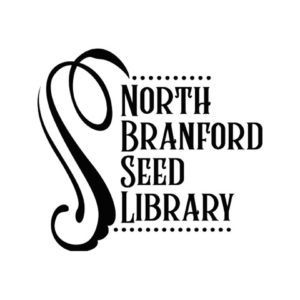What is a Seed Library
A local lending library for seeds. Just as a traditional Library enriches a community by sharing books and information, we want our Seed Library to play a long-term role in enriching our local community by sharing and preserving seeds. Similar to checking out a book at the library, at our Seed Library you can “check out” the seeds that you want to plant this season in your garden. Save seed from the best plants, then return them to the Library. Seed libraries promote healthy eating and the growing of local food. Together as a community we can strengthen food security and nurture a culture of sharing, learning and abundance. The bounty from your garden can be shared with family, friends, and neighbors.
How it Works
CHOOSE YOUR SEEDS
Explore the variety of vegetable and flower seeds available at both the Atwater and Smith Library and choose the plants you want to grow. The seed collection was created with donations and with ongoing success will have a continuous variety of seed choices with different seeds available at different times. To ensure a plentiful supply for the whole community, please take only what you know you can grow in this season.
CHECK ‘EM OUT
To borrow seeds, all you need is a valid Library card from the town you live in, you do not need to be a North Branford resident. After selecting your seeds from our catalog, visit the circulation desk where a staff member will check out your prepackaged seeds and record them in our Borrower’s binder. There is a limit of 5 seed packets per visit.
PLANT & GROW
Take your seeds home, plant them according to the directions, and watch your garden grow!
HARVEST & RETURN
As the plant reaches maturity at the end of its growing season, collect the seeds and dry them out. Save some for yourself and set some aside to bring to the Library. Store them in clearly labeled envelopes or baggies Fill out a “Seed Donation Form” (available on our website or at the circulation desk) and attach it to your seeds. Fill out a form for each kind of seed you return. Bring your labeled seeds to either the Atwater or Smith Library. This will help re-stock the Seed Library for the next season.
Where Do You Get The Seeds
We have been fortunate to receive donations from reputable seed companies including:
Baker Creek
Burpee Seeds
Chas. C. Hart Seed Company
Eden Brothers
Lake Valley Seed
Natureworks
New England Seed Company
Peaceful Valley Farm
Prairie Moon Nursery
Row 7 Seed Company
Simply Gro
Territorial Seeds
UCONN Master Gardeners and Ocean State Job Lot
Urban Farmer Seeds
West Coast Seeds
Seed Examples
Depending on availability, here are some examples of what you might find in the Seed Library.
Seed Saving
There is no obligation to return seeds but we encourage all users of our Seed Library to learn basic seed-saving techniques so that you can return seeds. This will allow us to create a self-sustaining library! Seed saving does take a little bit of know how. If you are new to seed saving and want to give it a try, we have several resources in our collection on how to save seeds. The Community Seed Network and Seed Savers Exchange also have several resources listed on their websites.
NEW TO SEED SAVING?
Start with seeds that are easier to grow! These seeds are great for beginners and only a few plants are needed to reliably produce seeds. Most of these are self-pollinating, which means you don’t have to worry too much about isolation and cross-pollination.
- basil
- beans
- beets
- carrots
- chard
- eggplant
- leeks
- lettuce
- onions
- parsley
- peas
- peppers
- spinach
- sunflowers
- tomatoes
More advanced seeds require special planning to preserve varietal purity. If certain precautions are not taken with them, then the next grower will not get the same plant. We want to ensure that the seeds you return to the library are indeed what they claim to be. So please borrow advanced seeds only after you have learned about isolating plants to prevent cross-pollination.

